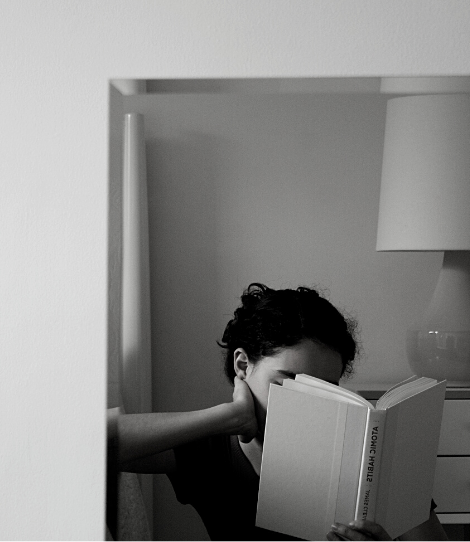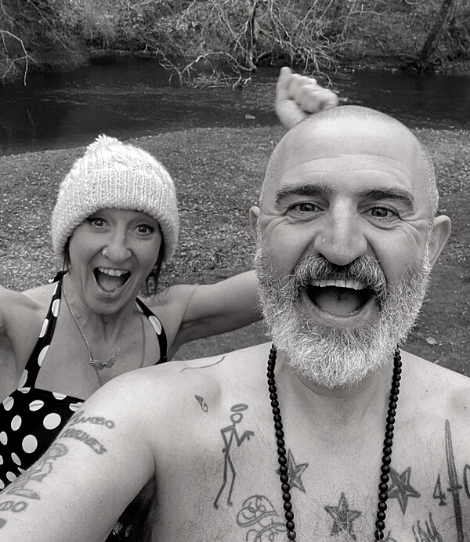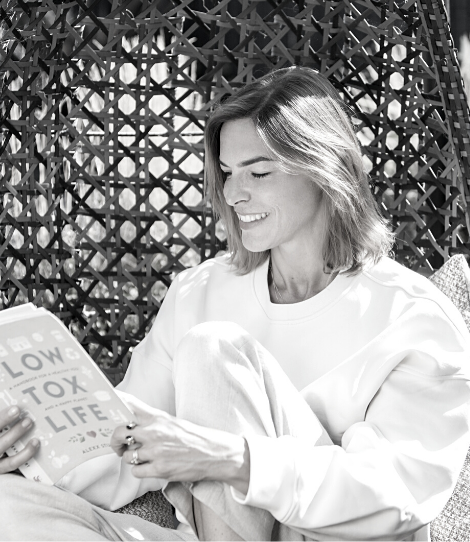I was just shy of my 54th birthday when I was first diagnosed with ADHD. As midlife gifts go, I’m not sure many women would have voted for it, but was it a comfort to finally have a label? Without a doubt. Was my wife happy about it? For sure. It meant we both had a better understanding of why I often struggled to concentrate in a more linear way, why I hyper-focussed often on the wrong thing in a conversation and why these focus shifts and my low moods could sometimes be challenging. Or — to put it more bluntly — just plain annoying.
In many ways, I now realise that being someone with an Attention Deficit Disorder has helped me excel in my working life. Having struggled with formal learning, I left school at 17 and got a job in the City, in the highly charged financial markets. Looking back, I can see I was suddenly surrounded by others whose brains also worked differently. In short, I fitted right in.
Who are the people who have ADHD?
There are so many caricatures drawn of people with ADHD, and one of them is that they are losers who struggle to hold down a job. The reality is that in environments where the brain needs to be able to leap around quickly from one subject to another, it does really give you an edge. Doctors who shine in A&E departments for instance, or top league sportsmen and women driven to think, quite literally, on their feet.
How many of them are aware that they too might be in this special club? According to ADHD Action, about 1.5 million adults are living with ADHD but only 120,000 are formally diagnosed. This is partly due to the fact that it wasn’t actually officially recognised as an adult condition until 2008.
My journey to diagnosis
My own journey to getting an ADHD diagnosis in midlife started, as with so much now, with a search on Google. I tracked down an online test and found myself ticking a high number of the boxes. It was then that I decided to talk to a professional. At this stage I should say that if you are reading this because you too feel you are living life with undiagnosed ADHD, I should stress that an online test is not definitive. But I would say it is the beginning of a conversation with yourself that is very helpful and gave me the impetus to go and see a psychiatrist.
I have always been very good at looking after my physical health. I love competitive sport and left my career in the City for a while to become a personal trainer. At one point I was responsible for running the gym at News International and bullying deskbound journalists into gaining functioning fitness – a challenge equal to dealing with the high-octane environment in the financial markets. But I realise I have never really devoted enough time to my mental health, so it was a real gear change to find myself sitting in front of a specialist who only talked ‘brains’.
Suddenly my symptoms made sense
Within one session, he had unpicked many of the clues to my behavioural patterns. How my brain fog wasn’t due to the menopause (as I’d suspected) but was one of the on/off symptoms of ADHD. Why I always craved chocolate and carbs – because my frontal lobes needed them for an instant hit. My restlessness, often being quiet in social situations, seeking diversions from mundane tasks, a childhood spent being dismissed as an underachiever – the only teachers who didn’t throw in the towel were my P.E. and English teachers.
I didn’t have every symptom
There is no such thing as a classic case of ADHD, and there are many symptoms I discovered I didn’t have. I don’t struggle with cleanliness – personal or otherwise. I’m almost the polar opposite on that front. I am untidy. However I think my untidiness issues are similar both personally and at home – everything is neat on the outside, but look into my head, or a drawer/cupboard at home, and it’s generally a bit chaotic. I don’t struggle with financial mismanagement – very lucky there. I also never forget to eat, sleep or go to the bathroom!
Some of the symptoms I do experience can in themselves make me fed up. The constantly active brain that jumps around with ideas and questions (especially at 3am!). The poor executive function, crappy memory, fear of failure, being overly self-critical, sensory overload in social situations, acute fear of rejection, difficulty with time-management and so on.
But those symptoms I have did add up to a positive diagnosis. And I use the word positive in its truest sense here. Getting that initial diagnosis felt like a breakthrough. It all suddenly made sense; I felt vindicated almost. As part of the process, the psychiatrist also wanted to see me with my wife, Charlotte. She didn’t quite punch the air and say ‘Finally!’ but it did also have a positive effect on our relationship.
My wife and my ADHD
As a barrister, Charlotte’s life is all about detail and communication – the complete opposite of me. My brain knows a little about a lot, and my communication style comes from the work I do – where it’s important to get as much information out there in as few words as possible. Opposites do attract, and we work well as a team, but there can be no doubt that the years spent before I had a ‘label’ were tough on her.
Drugs for ADHD
As part of my journey, I have discovered that there is no cure, but there is drug therapy, which works brilliantly for me. And I say this as someone who was loathe to even take a paracetamol and who only occasionally drinks alcohol. Yet I now regularly take a type of ‘speed’ or, to give it its proper name, Lisdexamfetamine, which might seem completely wrong. Why on earth give an ‘upper’ to someone who is already hyper? But there’s the problem. Having ADHD isn’t all about being hyper.
How is ADHD different for females v males?
True, men and boys tend to show more externalised symptoms, such as impulsivity, risk-taking and hyper activeness. But women and girls typically show internalized symptoms like quiet inattentiveness, low self-esteem and mood, and it is because of these less-obvious symptoms that women and girls have, historically, been harder to diagnose.
I don’t take a pill every day, but when I do, it works almost immediately and the difference is subtle but also obvious to those around me. My mood lifts, I become more relaxed and articulate, more interested in the sort of day-to-day chats that make the world go round. I can intuit situations more clearly and focus on the one thing that everyone else is focussing on – instead of appearing to be bored and distracted. I am also far more productive at work, more decisive, and find it easier to speak coherently about my emotions. I can still be me, just a more complete version of me. The me that doesn’t mind saying I have ADHD and I feel okay about that.
Sam Bussey
joy
View All
The best midlife crisis books for women
Reading can get your though the tough times in life, says Sam Baker, including menopause.

Cold water swimming cured my panic attacks
Breathing, immersion in freezing lakes and comraderie helped Sharing Miranda Bailey heal herself

I was a fashion insider — until I burned out
Gret Batchelar’s job in fashion was ‘perfect’. Except she was exhausted, moody and had a stress-induced ailment.

My PMDD living hell
Sachini Imbuldeniya struggled for years with debilitating symptoms. One day, she discovered they had a name


